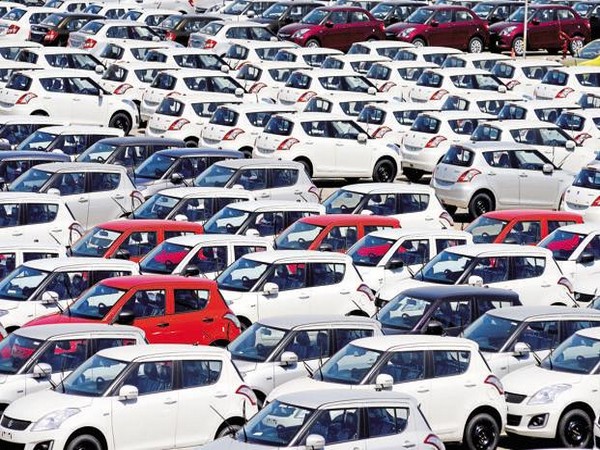Weak sentiment to curb automakers' sales despite better Q3: Fitch Ratings
Slowing GDP growth and weak consumer sentiment in India will continue to weigh on auto sales despite some improvement in the quarter ended December 2019, according to Fitch Ratings.

- Country:
- India
Slowing GDP growth and weak consumer sentiment in India will continue to weigh on auto sales despite some improvement in the quarter ended December 2019, according to Fitch Ratings. The decline in sales slowed for all key auto categories in the third quarter of the financial year ending March 2020 (3Q FY20) as automakers offered attractive discounts during the festive season.
Sales volumes have continued to decline since the start of 2020. Vehicle sales have been hampered by weak consumer sentiment and still-weak availability of financing following tighter liquidity at non-bank lenders since 2018. The sector also faces additional challenges from the adoption of stricter BS6 emission standards from April 1. Automakers could also face production disruptions if the COVID-19 novel coronavirus spread in China leads to a prolonged halt in the supply of required auto components.
Domestic sales volume of passenger vehicles fell by 1 per cent year-on-year in 3Q FY20 compared with a decline of 29 per cent in 2Q FY20, according to the Society of Indian Automobile Manufacturers. Sales volume of commercial vehicles and two-wheeled vehicles fell by 17 per cent and 15 per cent respectively in 3Q FY20, slowing from 35 per cent and 21 per cent in 2Q FY20.
Strong 28 per cent growth in utility vehicle sales volume partly offset the decline in passenger vehicle volume as Indian customers continued to prefer compact utility vehicles to traditional sedans and hatchbacks, helped by new launches by existing carmakers and new entrants. Domestic sales volume of passenger vehicles fell by 6 per cent year-on-year, commercial vehicles by 14 per cent and two-wheelers by 14 per cent in January.
Fitch said the risk of industrywide production and sales disruption due to the adoption of the BS6 emission standard is low because most manufacturers have developed compliant models and launched several of them well ahead of the deadline. Nonetheless, the higher price tags for these new BS6 compliant models, which may cost up to 15 per cent more for diesel variants, are likely to weigh on demand.
The BS6 transition is likely to push prices for two-wheelers higher by up to 10 per cent which will dampen demand recovery, especially in rural areas where the availability of vehicle financing is still weak. Increased costs, weak demand and intense competition could also squeeze Indian automakers' profitability, although they appear to be taking a disciplined pricing approach so far.
"We believe automakers' focus on reducing inventory, reflected in output cuts in recent quarters, will mitigate the risk of unsold inventory that does not comply with the new emission standard," said Fitch. Indian automakers source only 10 to 15 per cent of their components from China, mainly electronic components. Indian manufacturers and their suppliers typically keep around 30 days of inventory for imported parts and they had built some buffer in anticipation of planned closures during the Chinese New Year holidays.
"Nonetheless, acute shortages could result if factories in China remain closed beyond February or if logistical constraints prevent shipments, which could disrupt vehicle production in India or lead to higher costs," said Fitch. (ANI)
(This story has not been edited by Devdiscourse staff and is auto-generated from a syndicated feed.)
- READ MORE ON:
- India
- Fitch Ratings
- China
- Society of Indian Automobile Manufacturers
ALSO READ
US Delegation to Embark on Trade Mission to India to Discover Promising Agribusiness Opportunities
NEWSMAKER-He once sold tea, now India's Modi seeks his own 'tryst with destiny'
INSIGHT-India's Gandhi dynasty, trailing Modi, battles for political survival
ADB forecasts robust investment and consumer demand to boost India's GDP growth to 7% in FY25
India's Explosive Growth over the Past Decade, According to Silicon Valley Entrepreneur










